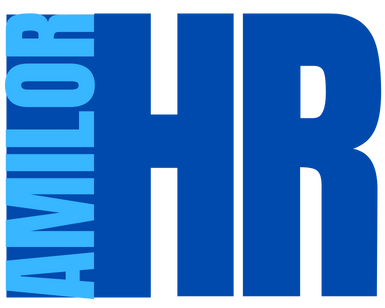Professional retraining in human resources offers many opportunities for those wishing to breathe new life into their careers. This constantly evolving field allows you to develop a wide range of skills and contribute to the well-being of your employees. Discover the key steps to a successful transition to HR and the prospects offered by this dynamic sector.
The many facets of the human resources profession
Human resources encompass a wide range of functions essential to the smooth running of companies. These professionals play a strategic role in providing the link between management and employees. Their main missions include :
- Recruiting and integrating new talent
- Training and skills development
- Personnel administration
- Social relations and internal communication
- Well-being and quality of life at work
Career opportunities in HR are many and varied. Here’s an overview of the main positions available after retraining:
| Position | Main tasks | Average salary |
|---|---|---|
| HR Assistant | Administrative management, support for HR teams | 1 700 – 2 300 € |
| Recruitment officer | Sourcing, interviews, integration of new employees | 2 500 – 3 500 € |
| Training manager | Development and monitoring of training plan | 3 500 – 5 000 € |
| Human resources manager | Definition and implementation of HR strategy | 6 000 – 10 000 € |
The diversity of assignments and working environments (companies, consultancies, public bodies) offers real career prospects for professionals undergoing retraining.
Essential skills and qualities for success in HR
A successful career change in human resources requires the development of a combination of technical skills and human qualities. HR professionals need to demonstrate :
- interpersonal and communication skills: the ability to interact with a wide variety of people
- Active listening and empathy: understanding employees’ needs and expectations
- Diplomacy and discretion: tactful handling of delicate situations
- Adaptability and versatility: adjust to changes in the sector and in organizations
- Curiosity and watchfulness: keep abreast of new trends and regulations
On a technical level, knowledge of :
- Labor law and collective agreements
- Human resources management (GPEC, remuneration, training)
- Accounting and finance (for payroll and budget management)
- IT tools and HRIS (Human Resources Information Systems)
Experience acquired in other fields can be a valuable asset when retraining in HR. For example, experience in management or project management can be a valuable asset in HR or training positions.

Training and financing for a successful career change
There are several training options for retraining in human resources, depending on your initial level of education and your career goals:
- BTS or DUT in Human Resources Management (Bac+2 level)
- Licence professionnelle or Bachelor RH (level Bac+3)
- Master’s degree or MBA specialized in Human Resources (Bac+5 level)
- State-certified professional qualifications (available through continuing education)
These courses can be taken on an initial, sandwich or continuing training basis, enabling you to adapt to different personal and professional situations. There are several ways you can finance your retraining:
- The Personal Training Account (CPF)
- Your current employer’s training plan
- Pôle Emploi assistance for jobseekers
- The professional transition project (formerly CIF)
It’s important to assess your training needs carefully and choose a program that’s suited to your profile and ambitions. Don’t hesitate to get in touch with training organizations and compare the different options available.
The advantages of a career in human resources
Opting for a career change in human resources offers many advantages:
- A dynamic, buoyant sector: companies of all sizes continue to have a strong need for HR professionals.
- Varied and stimulating assignments: from recruitment to conflict management and training, the tasks are diverse.
- A positive impact on employees’ lives: contributing to their well-being and professional development.
- A strategic position within the company: taking part in key decisions and defining HR policy.
- Opportunities for development and specialization: career-long training and access to positions of responsibility.
Retraining in HR also gives meaning to one’s work, by putting people at the heart of the company’s concerns. It’s an opportunity to put your interpersonal and organizational skills to work in a constantly evolving profession.
In short, a career change in human resources offers excellent prospects for those wishing to combine technical skills with human qualities. With the right training and strong motivation, it is entirely possible to make a successful transition to this dynamic and meaningful sector. Don’t forget to keep abreast of developments in the field and develop your professional network to maximize your chances of success in this new career.

